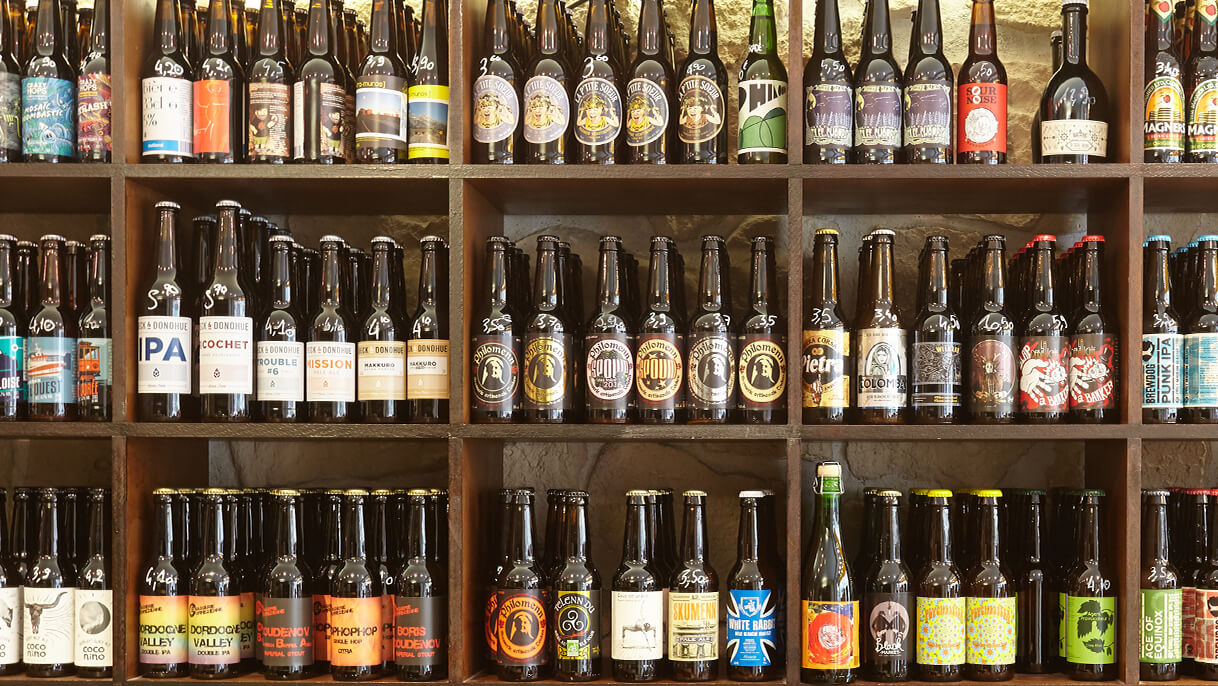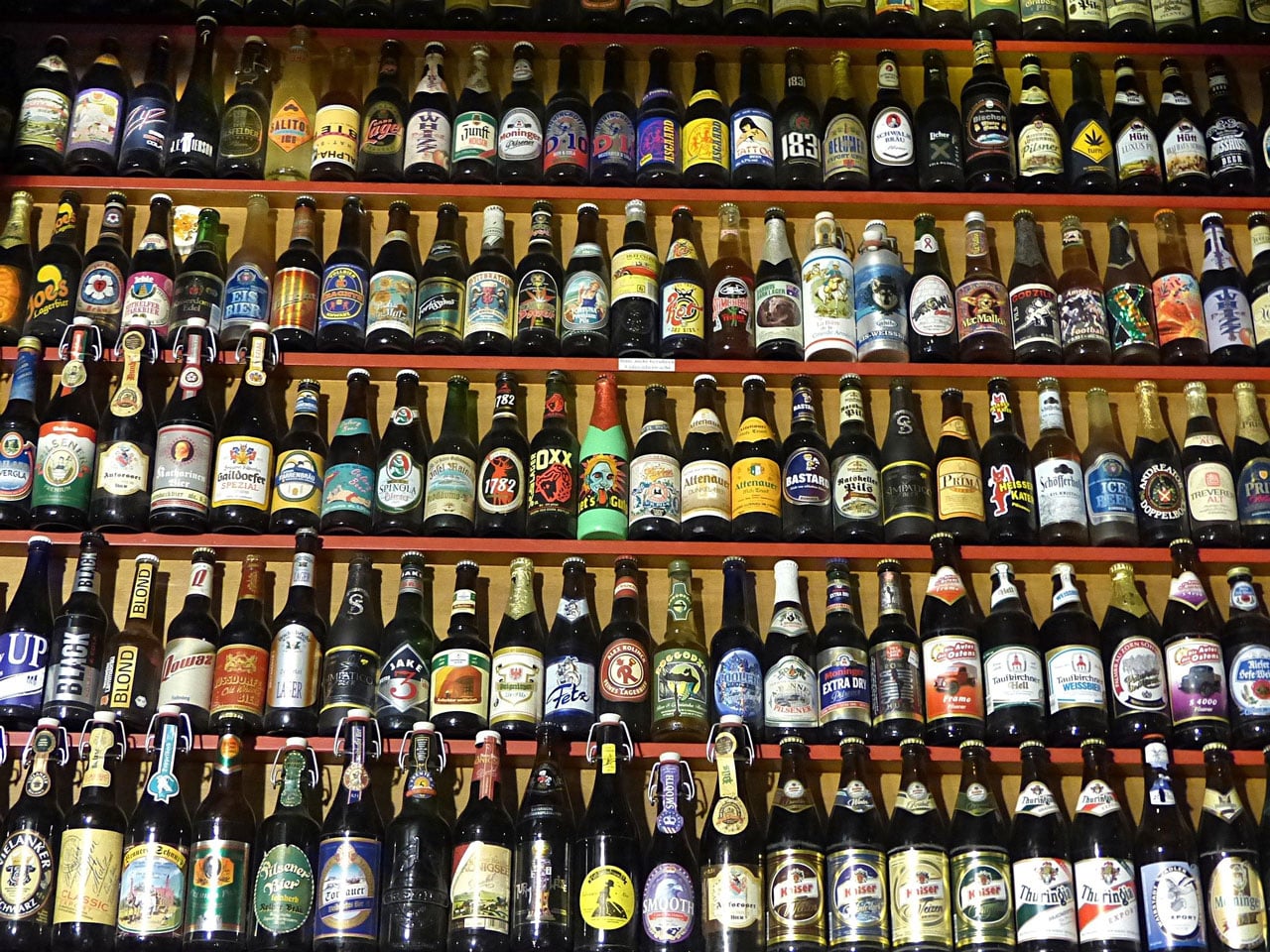Do you know a recent study has uncovered that temperature, time, and vibrations are important storage factors that impact beer quality?
Beer is a fantastic drink, but it gets bad quickly if not stored properly. Your beer must be stored properly, or unlike wine, it will quickly go nasty. Hence, beer has no indefinite shelf life, no matter how much you want. If you don’t drink your entire stock in one session, you should know how to preserve its freshness for later consumption. Let’s figure out how to store beer correctly to increase its shelf life with the best tips & tricks.
Table of Contents
ToggleDo All Types Of Beer Age the Same Way?
So, the point at which a certain beer will no longer be considered fresh cannot be specified. You can also assume some approaches that can be used to determine whether or not you need to worry about a beer’s freshness. The average shelf life of American beer is four to six months, whereas overseas beers can last up to a year.
You can use this rule of thumb with caution and skepticism based on your trial-and-error testing. Obviously, you can check the use-by date as one signal. Some beers don’t even begin to develop the tastes intended by the brewer until after 2–5 years. Beers with an alcohol content of 7 percent or above usually age well.
Here’s The Ultimate Way To Store Beer Step-By-Step

You can’t underestimate the significance of the proper way of beer storage. The right process of storing beer directly affects the quality of beer positively. You can follow these expert steps to store your beer with freshness.
Step 1: No Exposure To Sunlight
Usually, beer exposed to ultraviolet light becomes skunky and tastes bad. In fact, the hop plant’s acids are neutralized by UV radiation, forming a substance with an unpleasant odor and a rubbery, unpleasant flavor. If you protect the bottles from excessive sunlight, it will be the best technique to store
Step 2: Set Temperature To Cool
The beer loses its freshness when exposed to heat; thus, it should be stored at a cool temperature. A beer cellar or refrigerator are both good locations, but the drying climate of the fridge should be avoided for the long-term preservation of collectible beers.
Step 3: Track The Expiry
Check the bottle or can for the expiration date before buying beer. It should give you a ballpark estimate of its shelf life and the ideal consumption time. To tell if the beer has gone bad, watch for any changes in flavor or aroma. If there is a problem, you should probably buy a new beer.
Step 4: Airtight Packaging
Maybe you always store your food & drink in airtight containers. Right? Beer is no different, so check for any signs of leaking before storing beer for a long time. It would be best to keep your beer in an airtight container to prevent it from going stale and smelling funky.
Step 5: Prefer Upright Position
Store beer upright for storage because it prevents oxidation by separating the liquid from the cap. The other reason is beer sediment, which can detract from the beverage’s flavor when consumed. It is less likely to form when the bottle is stored upright. Actually, this step is similar to the wine repository process.
6 Tips To Enhance The Shelf-Life Of Your Beer

Several factors impact beer quality in general. Therefore, keeping these tips in mind can increase the shelf life of beer.
1. Don’t Want To Store? Drink In Three Months
Beer should be consumed within three months of the bottling date if you don’t want to store it for a long time. Beer that has been pasteurized can be stored for longer than a few months. The can of pasteurized beer will be good for nearly a full year after opening. So, if your beer isn’t under favorable temperatures or conditions, drinking it early is a good strategy.
2. Must Avoid Freezing
It’s a great idea to make beer icy to chill it before consumption swiftly. But it’s not a good idea to keep beer in the freezer. However, there are some possibilities to avoid beer freezing. Putting craft beer in the freezer will cause it to explode. Ultimately, it leads to a mess and wasted beer.
3. Store In Fridge For Quick & Frequent Use
Typically, the aging of beer begins at the time of its production. Nevertheless, placing beer in the fridge as soon as you get it will increase its shelf life. Even if you don’t plan to consume it for another two months, there is no need to worry about the quality. Flavors and oxidation progress, but storage at cool temperatures slows the process.
4. Don’t Store Opened Beer
If you want to store once-opened beer, then think again. You should avoid wasting beer by trying to store it once it has been opened. Beer tastes terrible the next day after opening because the carbonation has evaporated. Use it for something other than drinking if you can’t stomach it. But no probs, new beer has many great applications, such as in cooking or hair care.
5. Pasteurization Check
Checking for pasteurization is also an important factor. The shelf life of beer from most American craft breweries is lower because of the lack of pasteurization. You can extend the shelf life of your beer by purchasing pasteurized beer. In this one-of-a-kind method, the beer is heated to a particular temperature to eliminate spoilage bacteria and yeast.
6. Store In Small Quantity
Beer drinkers may benefit from purchasing or brewing in small quantities. You will ensure the beer stays fresh and cool for as long as possible. If you’re looking to save money, buying in bulk is the way to go, but remember that the beer won’t be as fresh as it was when you initially bought it. If you want to consume the freshest beer possible, it’s also a good idea to rotate your supply regularly. Moreover, it will provide the best possible taste and protect you from any unpleasant surprises.

I am a passionate beer connoisseur with a deep appreciation for the art and science of brewing. With years of experience tasting and evaluating various beers, I love to share my opinions and insights with others and I am always eager to engage in lively discussions about my favorite beverage.
















